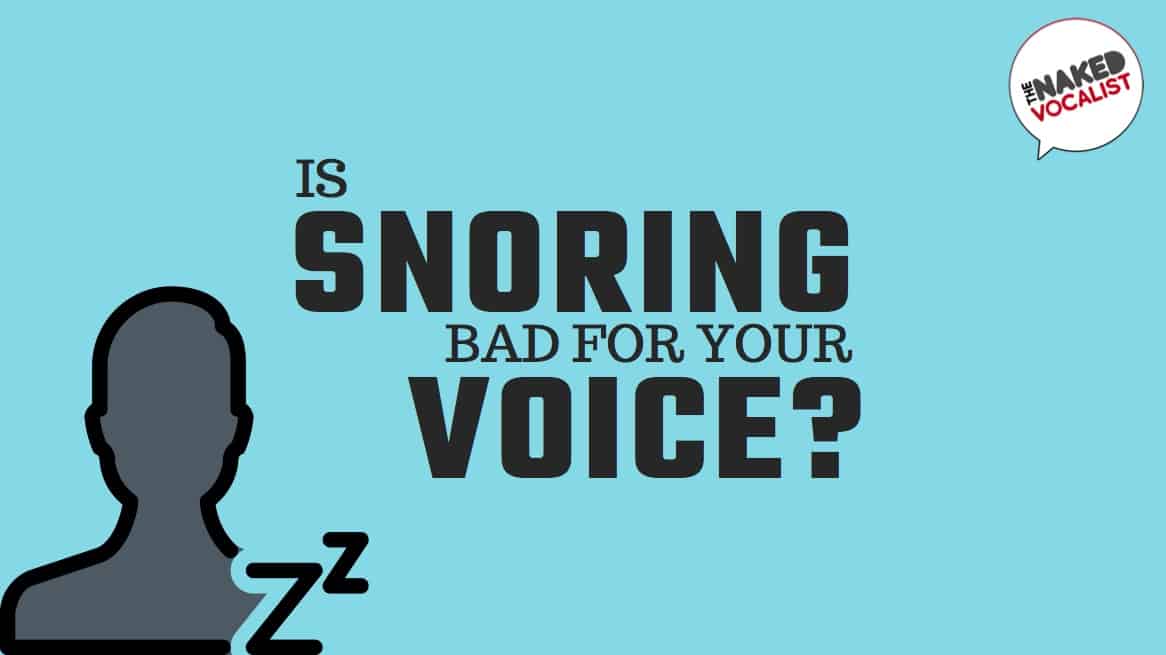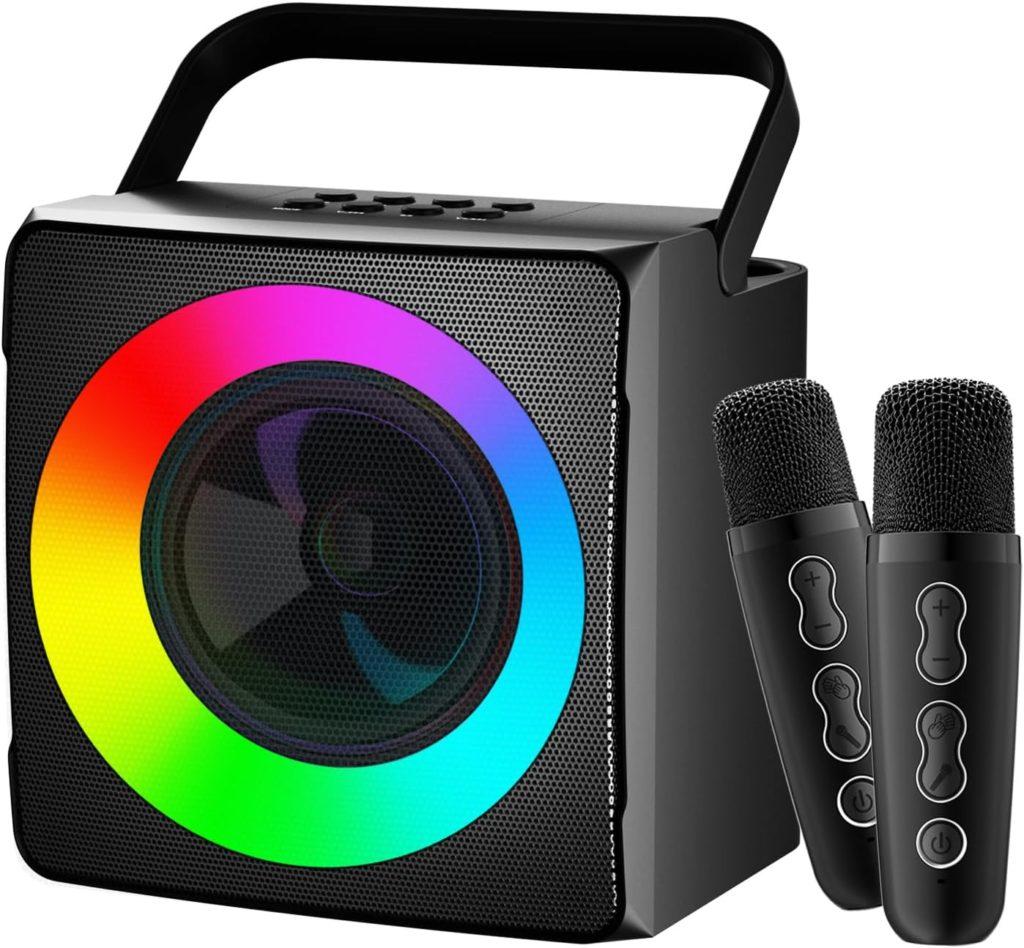
“But I don’t snore”, I hear you say.
Let’s ask your partner shall we hmmm?
*person lowers head and tries to hide a pillow dribble patch*
Does snoring affect your voice?
So, what is the impact of snoring, if any, on our voices and how can we avoid it? I guess that depends on how often it happens. It might also depend on whether you’re just doing a little snort here and there, or going full walrus every night.
What happens in snoring?
A scientific way of saying it would be that it is “a common condition characterised by recurrent upper airway obstruction”. The South American research team, led by Dr Leto, also say that snoring is specifically “caused by vibration of soft tissues obstructing the pharynx during sleep”. Basically, your throat collapses and the fleshy bits rattle as you breath. Lovely.
It’s normal…. Isn’t it???
In todays world I guess it’s becoming that way. It’s reported to be anywhere between 15% and 57% of the population in countries around the world. In the UK it’s around 40% who are aware they regularly snore, and guess what? Men aged 25 and over are the prime candidates!
That’ll be me then.
Come and eat me
However, it isn’t necessarily how we are hard wired so it can’t carry the label ‘normal’. Many ancient cultures slept in ways that were best for survival, and that included ways to minimise snoring. After all, if you sound like a broken clacker during the night then maybe that might attract something that would like to eat you?
Nowadays though, we’re at the top of the food chain with zero danger from predators so obvs, we’re going to care a lot less about snoring.
The modern story of snoring
Unless you want to hate your husband even more!
Pass me the lip balm
According to a survey by Breathe Right in the US, 61% of the 1001 participants of a survey reported themselves as a general mouth breather, but again, a massive amount report this as just nighttime thing. Hence the reports of waking up with a sore throat, rough voice and cracked lips. If that sounds like your everyday, then maybe this article is for you.
“snorers are more likely to experience hoarseness than are non-snorers”
Hamdan et al 2012
Because non-snorers tend to breathe nasally, they rarely experience those symptoms because our schnoz humidifies air and keeps our throats hydrated across the long sleep period.
I won’t bang on about how hydration of the vocal folds is integral to easy, healthy voicing but rest assured that the breathing mode of snoring will directly dehydrate those little fellas. That makes sense with the hoarseness reported by the subjects in Hamdans 2012 study of snorers.
And a tissue, while you’re at it
It can obviously be difficult to avoid snoring if you have a stuffy nose, but just the act of breathing through the mouth leads to an increase of the inflammatory response in your nose, swelling the nasal passages.
Actually, I need the day off
Lastly, snoring and mouth breathing actually cause our body to lose oxygen and feel like rubbish in the morning. Or, if it’s bad enough, for the rest of the day.
Because snoring isn’t the way our body likes to breathe, blood vessels end up narrowing as a reaction (a physiological process called vasoconstriction). After that, we get reduced blood flow and oxygen to the brain. That’ll feel like a hangover the next morning so expect a craving for a fried brekky.
If the story still sounds familiar then you might be due a sleep review. After all, how many singers are going to do their very best with all this going on each night?
Not many.
So start here.
1. Try to avoid back sleeping for a while
In sleeping positions, many other cultures and species value warmth, comfort, and as previously mentioned, protection. They tend to favour side, sitting (hate this one) or front sleeping instead. Some even kneel in a kind of duck-and-cover fashion. Why?
A pool of blood :-/
Shock factor – check
Although back sleeping is often recommended by experts for muscles and joints, the sleep experts are in agreement that sleeping on your back isn’t great for a lot of respiratory problems. One reason is that blood is more likely to pool in your nasal blood vessels. Ever get that thing where your nose is fine all day, and as soon as you go to bed….? Yeah, that.
That pooling blood can leave your nose feeling like it’s just instantly got blocked up with hard mucus. Unsurprisingly, if this happens you’ll have to breathe through your mouth, and we know that ain’t good for your voice. More about that here.
But at least you’re not Voldemort
Swallow your tongue
Another BIG reason is that the muscles in the soft palette and the tongue are less active in back sleeping, and it’s those fleshy bits that collapse into the throat and block your breathing. You may also feel your jaw recede into your neck when you’re lying on your back, narrowing the throat. That comedy of errors causes snoring, or even more serious obstructions like sleep apnea.
Any other position than on your back will reduce the likelihood of a tight throat, blood in your nose and swallowing your tongue. That’s a hell of a summary!
2. Open your nose with Breathe Right strips

And they stay on all night!
I can totally testify to these little wonders. Not only do they make you look like Apollo Creed, they do a really good job of widening the nasal passages so you can easily get more air in. For me, I wasn’t bunged up but my nasal passages seemed to swell at bedtime. A little help from my special nose plaster meant I could still breathe and didn’t need to open my mouth during the night. The result was a voice that was all the more ready-to-go the next morning; something I used to really struggle with.
Give them a try and click here (Amazon link).
3. A change in lifestyle
We all know the stuff that isn’t good for us deep down. Due to their effects on throat space and the breathing system, it’s unsurprising that obesity, smoking, drinking and poor posture largely contribute to pillow dribbling. Check in on these first with a health professional and prioritise your lifestyle as a voice user.
4. Increase muscle tone in your mouth
A downside to longterm snoring and mouth breathing is your mouth muscle. In chronic cases it can leave the network of muscles that you use to breathe, swallow, speak and sing in odd positions. That can lead them to change their relationship to each other over time, where some muscles become over-tensed and short, where others become stretched or weakened. That can tip the fine balance that’s needed for athletic singing.
“Oropharyngeal exercises are effective in reducing objectively measured snoring and are a
possible treatment of a large population suffering from snoring”
Leto et al, 2015.
Stabilisers
Some common therapies for snoring and sleep apnea are ones that restore the muscle balance and tonicity in the tongue and supporting structures. This type of training can really help those muscles to wake up and do their job as ‘airway stabilisers’.
Nom nom
Simple vocal exercises are chewing whilst you hum, either on specific scales or song melodies. You can chew whilst sustaining NG, N or L sounds too. These variations give the tongue slightly different jobs to do, positively building on it’s role in the system. The chewing will also help loosen the jaw and it’s many connections. This will benefit your singing straight away too!
Take that tongue to the gym
There are tongue and palette workouts that have been trailed in snoring too, and you can see parallels of these exercises in singing techniques of the past. They involved repeatedly pressing the hump of your tongue into your hard palette, like the shape of a G consonant, and holding it for 3 secs each time. Another is firmly scraping your tongue tip along the middle of your hard palette, from the teeth backwards. Lastly, you can suck your tongue up to your soft palette and press the entire tongue body into the roof of the mouth. This set of exercises is supposed to be performed for 10 to 20 reps each, WITHOUT using the jaw to clench or move the tongue. It has to be slack and not ‘bitey’.
Note: You do not need a protein shake after this workout.
Keep calm and carry on
Singers and snoring subjects have worked on their tongues this way for 3 months to get good results, so have patience and try and bring some tongue, palette and jaw exercises into your warm up routine. It doesn’t even have to be strategic initially. You could begin by trying to touch the end of your nose with the tip of your tongue a few times a day. That’ll get things going at least!
Are you looking for optimum?
Sometimes I write these things and think “is it really THAT important?”. No doubt some of you will read it and think that too. The thing about this is that everyone has a different story. A different reaction. A different voice.
If you snore often and loudly, it may impact you much more than an infrequent, quiet snorer. If your singing duties are full-on and high ranged most nights per week, then you might also be feeling the burn. So before you discount whether your sleep habits are affecting your singing, give it a little time to see if these simple hacks make a difference. They did for me!
References
https://www.ncbi.nlm.nih.gov/pubmed/16242364 – Sleep, breathing and the nose.
https://www.ncbi.nlm.nih.gov/pmc/articles/PMC5466403/ – Effects of Nasal or Oral Breathing on Anaerobic Power Output and Metabolic Responses
https://sleepqplus.com/pages/mouth-breathing-survey
https://www.ncbi.nlm.nih.gov/pubmed/18183444 – The effect of singing on snoring and daytime somnolence
https://www.ncbi.nlm.nih.gov/pmc/articles/PMC1119282/ – Instinctive sleeping and resting postures: an anthropological and zoological approach to treatment of low back and joint pain
Sleep Medicine – Kathleen L.Yaremchuk, Pell Ann Wardrop
https://www.ncbi.nlm.nih.gov/pubmed/25950418 – The Effects of Oropharyngeal Exercises on Snoring
https://www.ncbi.nlm.nih.gov/pubmed/22278867 – The effect of snoring on voice: a controlled study of 30 subjects
Singing and Teaching Singing: A Holistic Approach to Classical Voice – Janice Chapman






